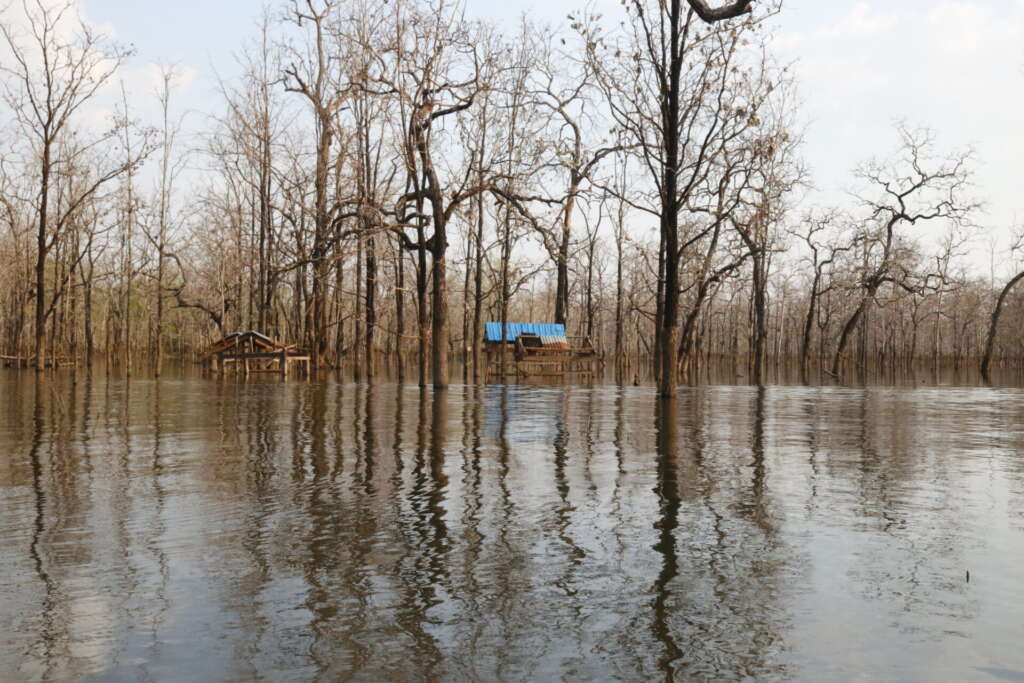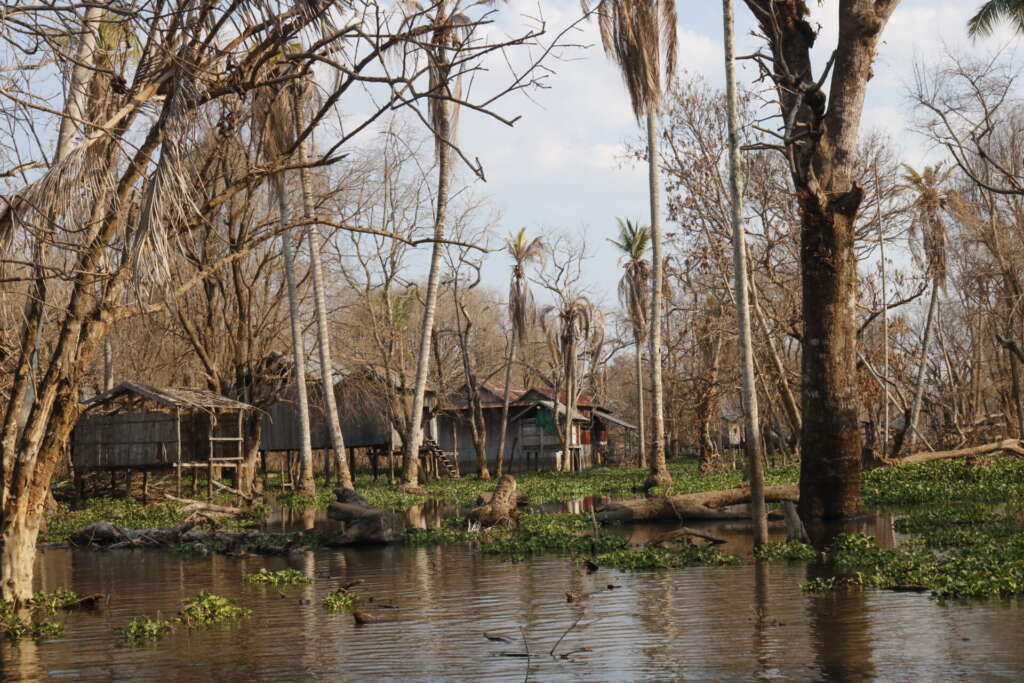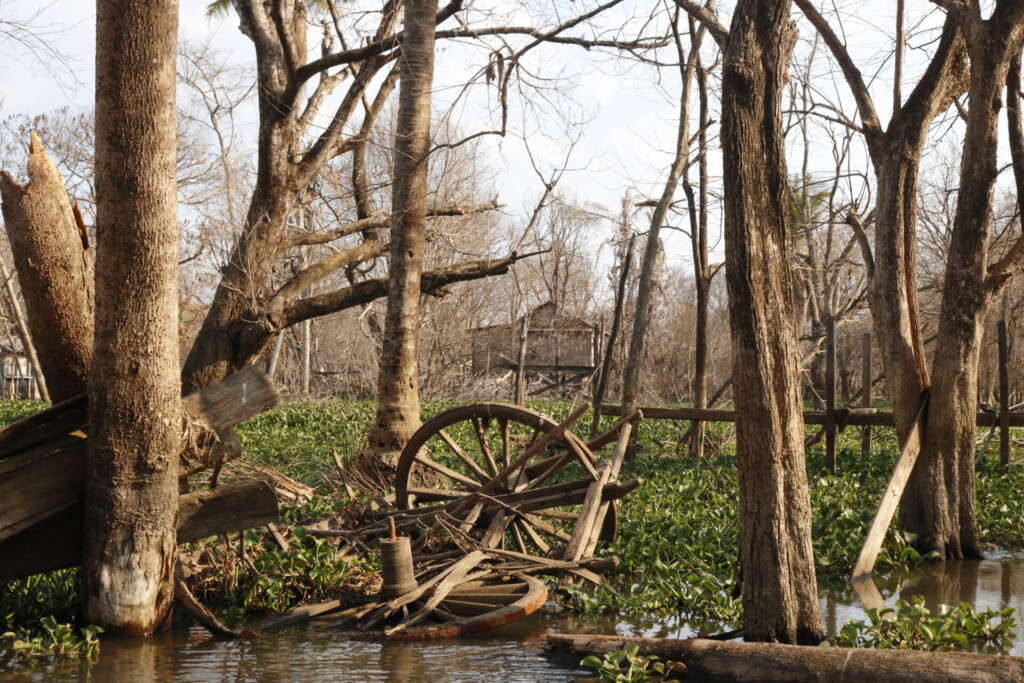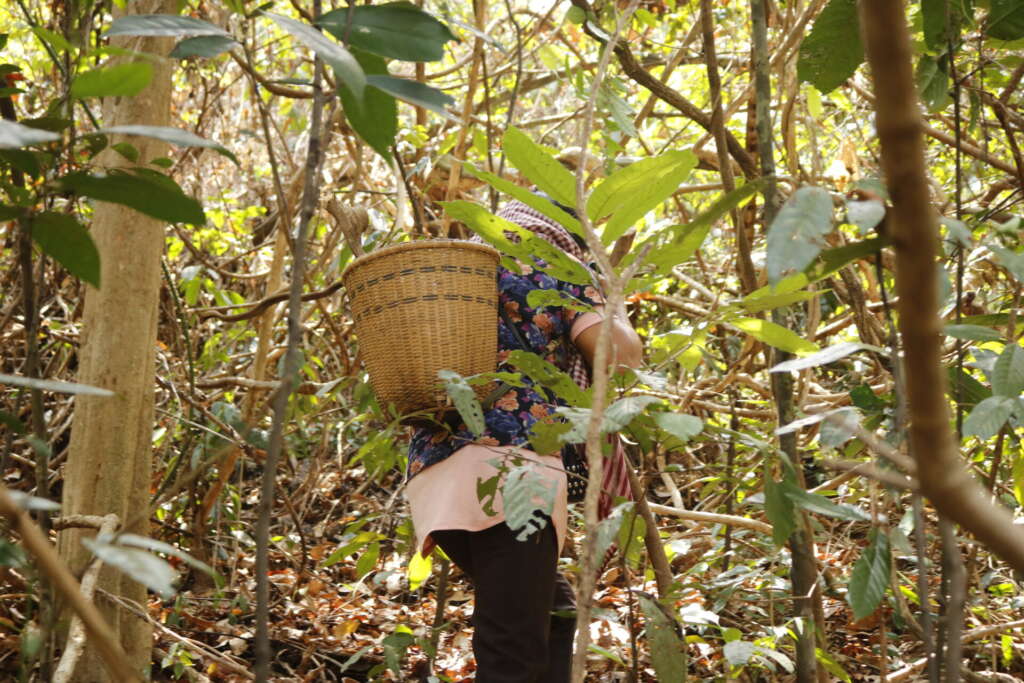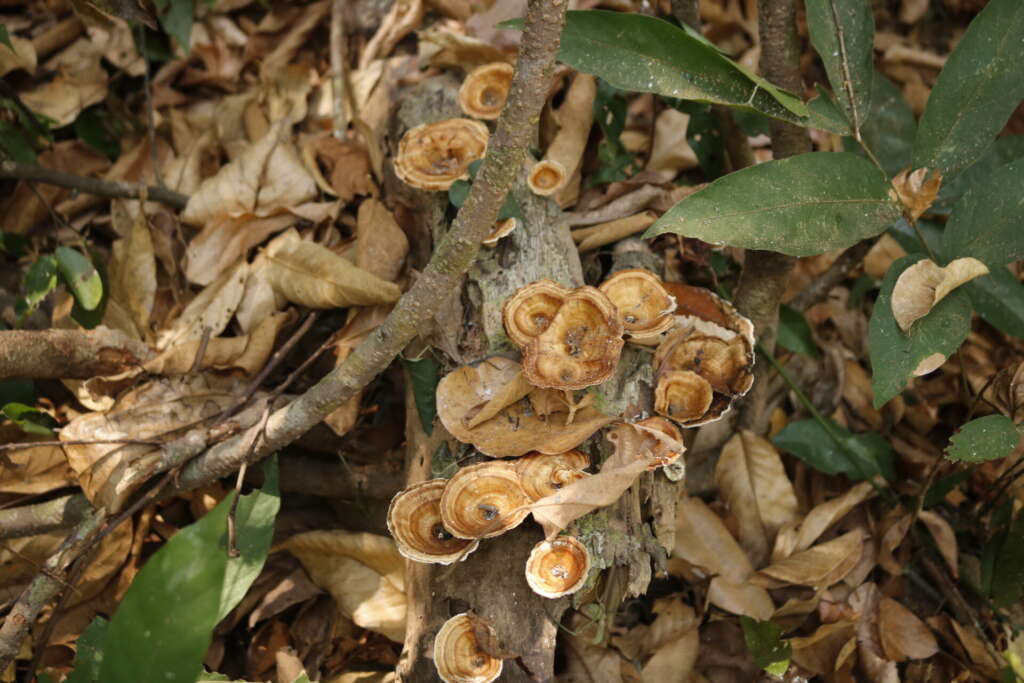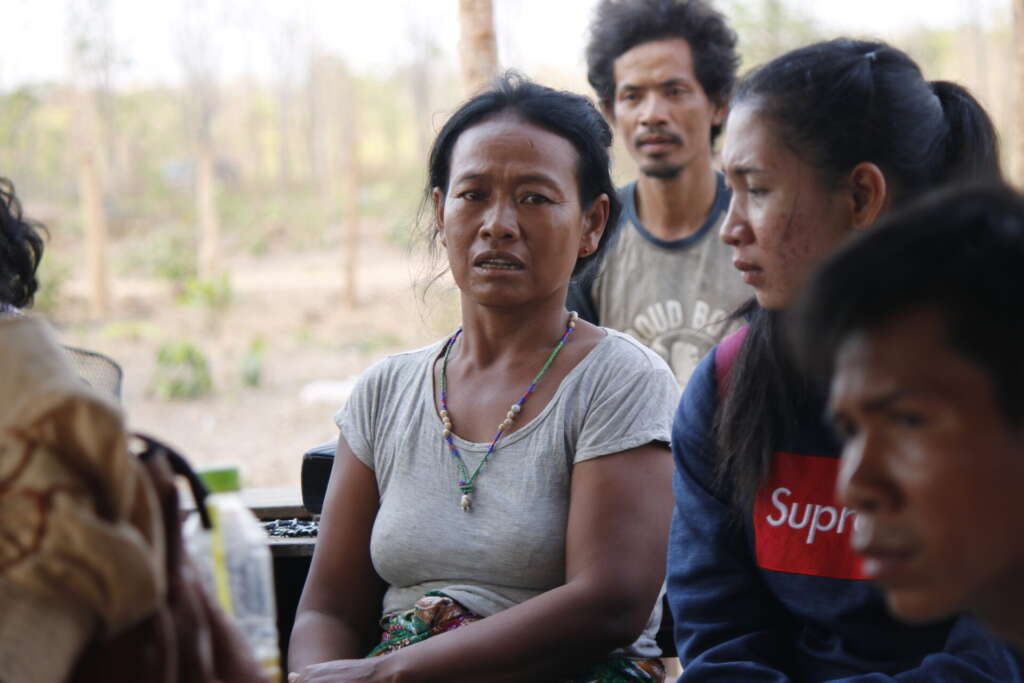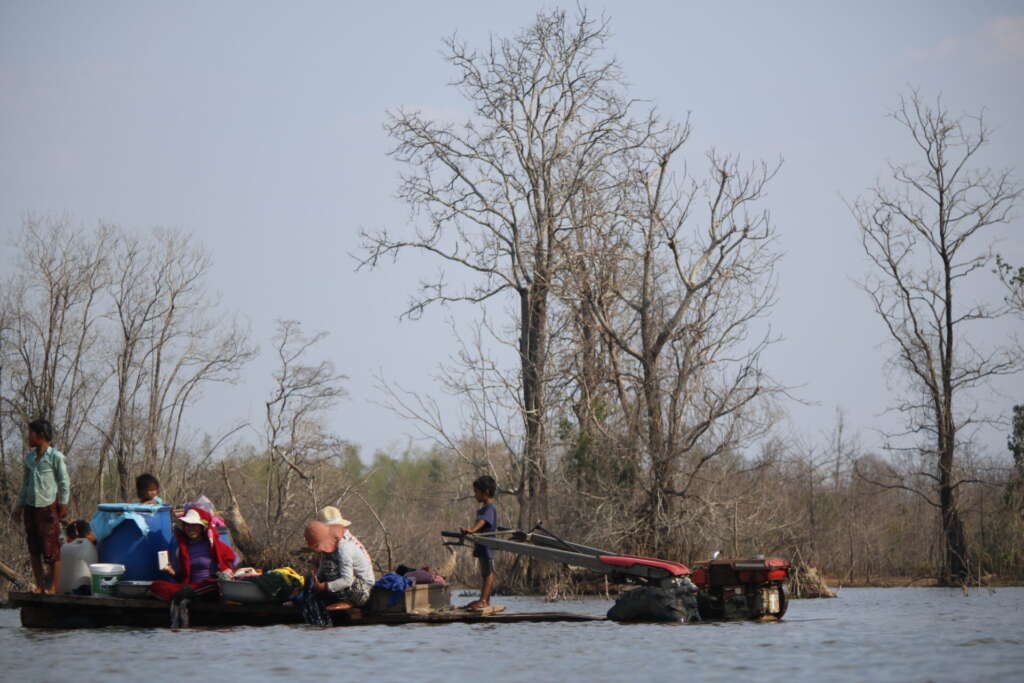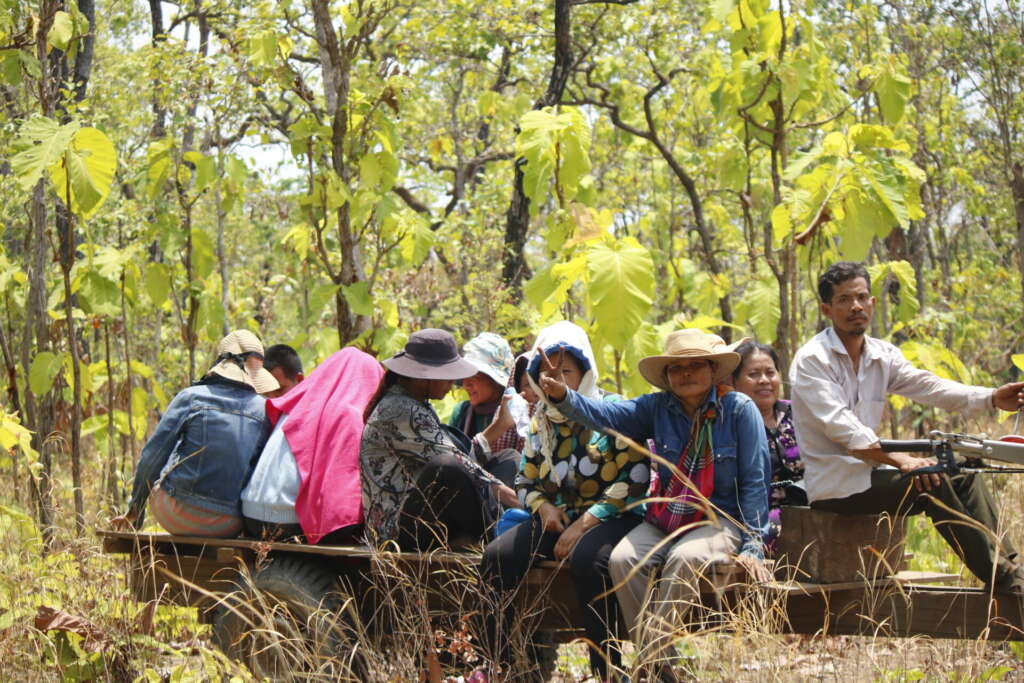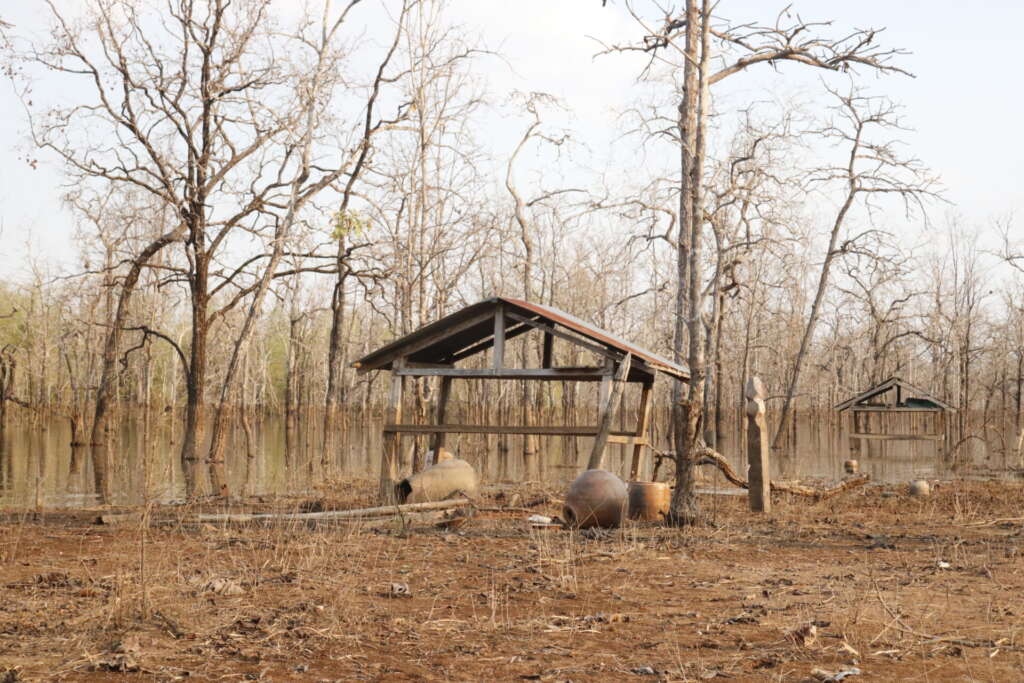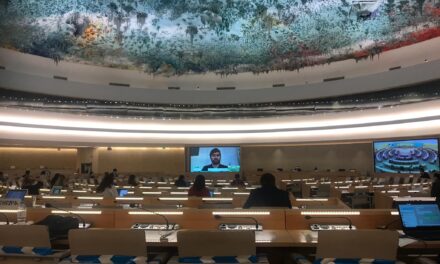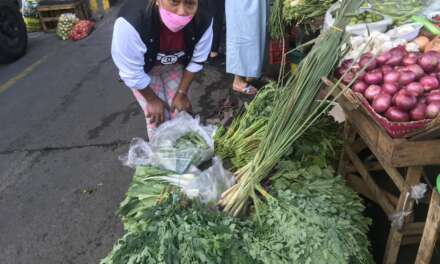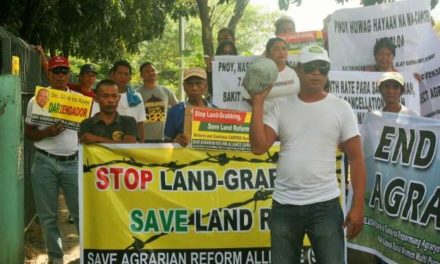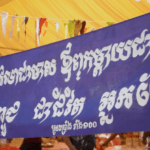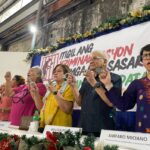A group of around 50 indigenous families from a community of indigenous peoples in Romeas village, Sre kor commune, Sesan district, Strung Treng Province, refuse to accept the compensation offered to them and move to a new place the government provided as a compensation when their old village was flooded by a hydropower dam. The photos above showed the situation of the village after the water from the dam was released.
All the photos featured in this photo essay were taken by Phun Phearun from Focus on the Global South.
The indigenous communities initially refused to leave the village because their daily activities were tied to the land, from farming on the rice field and raising livestock, and to the forest which their lives depended on, which provided them with non-timber necessities for all season, and where they exercised their faith and buried their ancestors.
“We want to preserve our forest, tradition, culture and family’s livelihood. We want to live and be independent for our various activities in the community such as to release cows, buffalos and pigs which are part of our belief and our religion. If we receive the compensation and leave the village, so what’s left for our next generations”
In the end, because of their destroyed village, instead of moving to the government-designated place, they decided to find a safe place in an old rotation farm they used to work on, still nearby the forest and their old village. In their new place, they continue their livelihood by fishing, hunting in the forest with their dogs and foraging in the forest for their daily necessities.
Although their old village has become inhabitable due to the flooding by the dam, the indigenous communities still regarded the land as their own and preserved their culture, traditions, and custom in that place because their ancestors are buried there. Even until now, they still go visit their village when it’s dry. The picture above showed the graves of Indigenous ancestors that were flooded by the water released from the dam.
“We cannot leave because we will then miss the old memories, we cannot leave the graves of our ancestors alone”.

